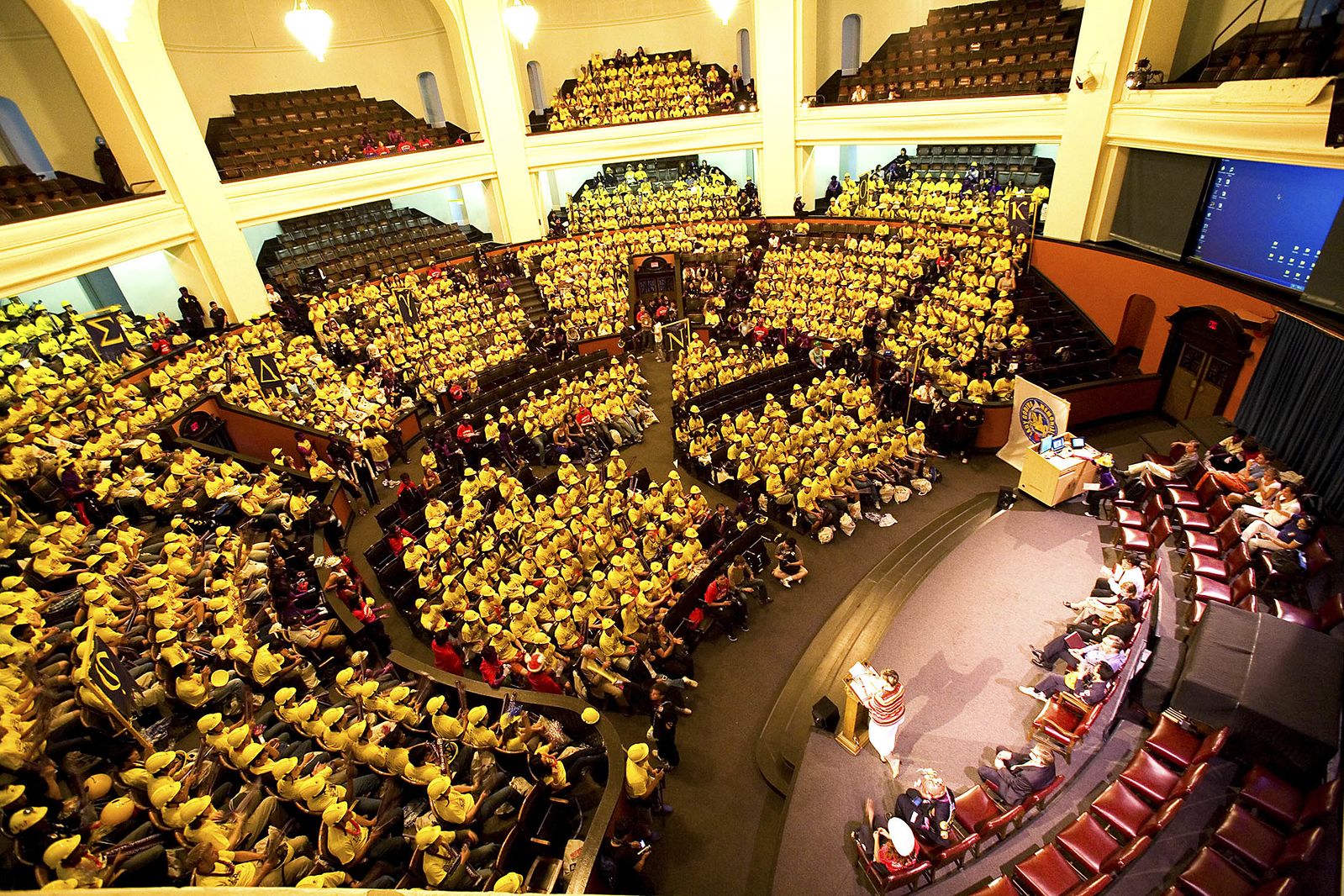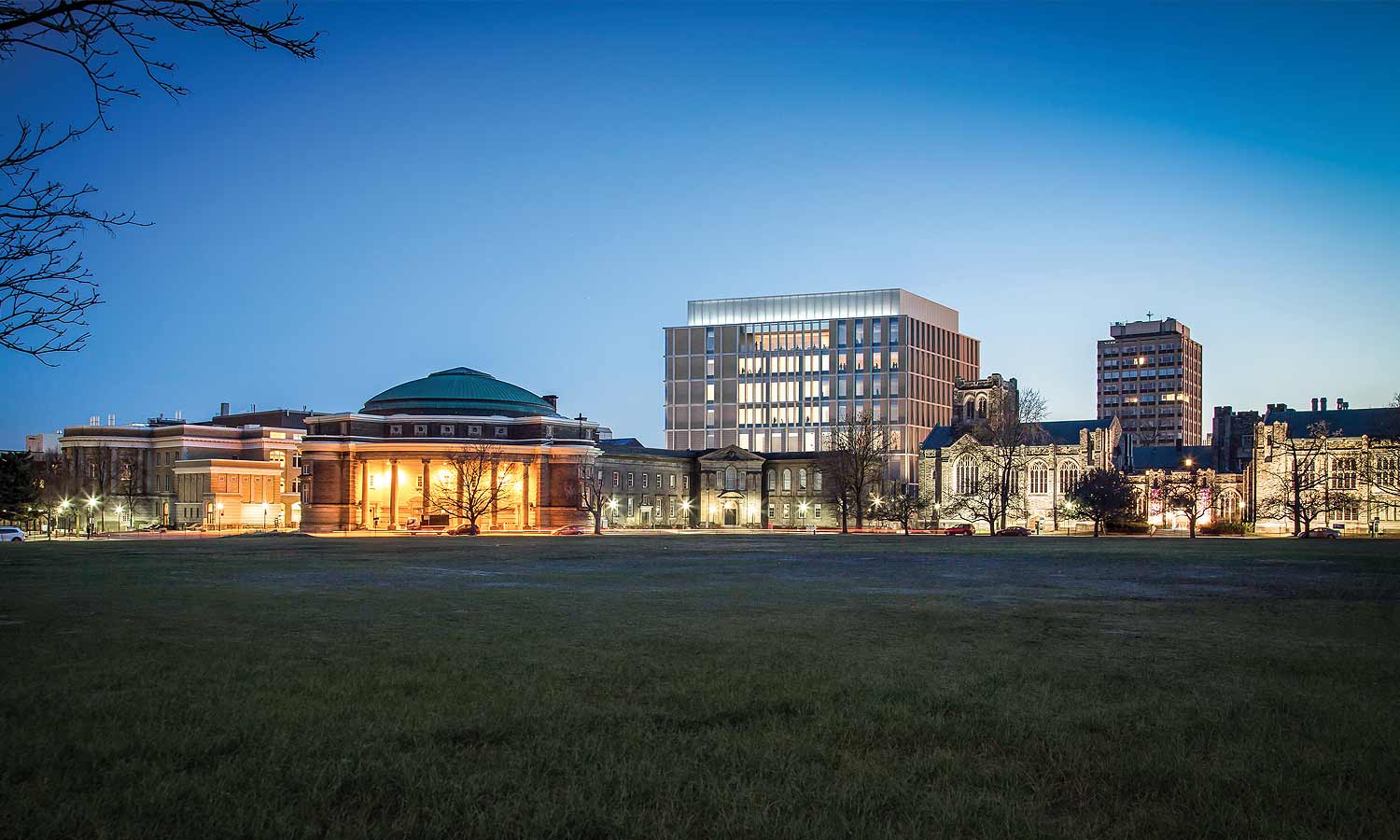Joanna Roy
- From: Toronto, Ontario
- Major: Electrical and Computer Engineering
- Future Plans: Working in the field of artificial intelligence ethics
- Hobbies: Running and having a lot of pets
- Fun Fact: Joanna once completed a marathon with a broken foot!

Why did you choose EngSci and what made you choose ECE as your major?
I made an extremely last-minute decision to come to EngSci. I met a family friend who did EngSci Biomedical Engineering, and she told me that she loved it, which basically converted me to this trajectory, which I think was for the best. At the time, I was super set on doing Biomedical Engineering, and I had never coded before. Coming into first year, I was really intimidated by the fact that I would be coding, and that a lot of other people had done it before. But ESC180 was a really good introduction to coding for me, and then I just got hooked. I also really liked the physics courses in second year, and almost went into Engineering Physics (I was extremely torn between, like, six of the EngSci majors) but I picked ECE since I could code and do physics. ECE kept my options as broad as I could have kept them, which is such a classic EngSci thing, but I just really liked that I could focus on either the electrical side or the computer side, and within the computer side focus on hardware or software.
Biomed was still among the six options that I was considering. However, in Engineering Physics or Biomed, you’re learning about something that already exists and already works, such as physical systems or the body. In ECE, I really like how you have the ability to create things if you’re coding something and consider more design questions. Part of it is memorizing whatever standards there are, but humans created computers and we know how they work; it’s now a matter of what we can do with them.
The benefit of EngSci was that I got to see which parts of each discipline most strongly resonated with me.”
What were some of the notable extracurricular activities in which you engaged at U of T? From where did your dedication to volunteering originate?

I started with Engineers Without Borders (EWB) in first year, and I did a bunch with them for a couple of years. Then, I got involved with Skule Mental Wellness, which is through the Engineering Society (EngSoc). After that, I had another project directorship with EngSoc where I was the Orientation Chair. I did other things here and there, especially in my 4th year, such as intramurals, and being a barista at the Victoria College Cafe.
Through volunteering, I immersed myself in a great community. I found EngSci hard, as did most people, but I also found that because of how demanding it was, it could easily over your life; when that happens, if you have something like a bad midterm or a hard course, it’s easy to let those things define you more if that’s like the only thing that you have in your life. Volunteering with EWB was such a nice break. It was just a consistent thing that I could come back to, and I knew that I was doing something positive. Helping people was what guided which extracurriculars I chose, and this turned out to be very fulfilling. When we went online due to COVID, we did a food bank; there were so many food-insecure people on campus that we didn’t need to advertise it at all, and we had so many people using it constantly. I got to meet people and do things that would impact others positively.I appreciated the community, and I also noticed myself growing a lot in those roles and learning a lot about potential career paths or having interesting discussions, connecting with and receiving mentorship from upper-years (many of whom I’m still close with).
Opening my eyes to the less traditional things you could do with engineering was really helpful. I felt proud of the things that we were accomplishing as a team.
Was it challenging balance getting technical experience to specialize in your field and achieve internships, and volunteering?
Another classic dilemma. Besides an elective course called TEP448 (Systems Mapping), classes were my place to learn technical things. Regarding design teams, I wanted to have other non-technical experiences through my extracurriculars. There were times when I questioned if I should do more technical projects, since many people do personal projects when applying for internships. I did research placements, but for the most part I never opted to just “code something for fun.” In EWB, I definitely did technical things, but they were always in-service of something non-technical (which is engineering as a whole). I was always drawn more towards social questions, but because so many people around me were doing technical extracurriculars, I definitely questioned it a lot. I still do question it because my resume is much less technical than some people who had a different focus, but there were a lot of amazing things that came from those leadership experiences, which allowed me to develop more as a person. I think that was how I found my place in engineering, and overall, I didn’t have too much trouble finding a somewhat technical job.
My earlier research placements in quantum computing, which I still love and find interesting, inevitably became extremely technical. AI ethics, which involves many technical aspects with deep mathematics, is still in service of a bigger social concept, which I find to be more motivating. There’s a personal balance that everyone should determine. Eventually I’ll go to graduate school and now that I know what I want to do, I can determine thesis ideas to propose to professors, that are well aligned with what I want to do.
Do you have any miscellaneous advice for incoming students?
I told this to a lot of people during F!rosh Week, but just have fun with EngSci. You’ve made it here and you’re competent enough to be here, now just enjoy the experience. I did best when I took a step back and appreciated how cool it was that I got to study special relativity and quantum physics as a second-year student. Do things because you enjoy them, not just because they look good on a resume. Even though some extracurriculars had nothing to do with my courses, they still helped me have a better mindset for them.
Once I started doing that, the opportunities just came up and people will notice your competency and passion, after which they’ll ask if you want to do other things.
My experience was shaped by the many mentors and upper-years who I had, and that’s why I always go back to extracurriculars because most of them I wouldn’t know without doing that.
I felt a responsibility to contribute back to my community because I knew how many people had taken time out of their day to help me and provide guidance.
Other events that convinced me to come to EngSci were the Girls’ Leadership in Engineering Experience (GLEE), and the conversations I had at that EngSci dinner before accepting my offer. Upper-years have helped you become part of the community, so you should do the same for new students. I think a lot of people will do that anyways. At some point during your engineering journey, you will become an upper-year that someone looks up to; you’ll have many insights to share.
Also, go to office hours! I had some of the most helpful discussions at office hours, and it is truly mind-boggling when people don’t attend them. Like, the professor is there, and they write your tests, and they will tell you exactly what you need to know!

